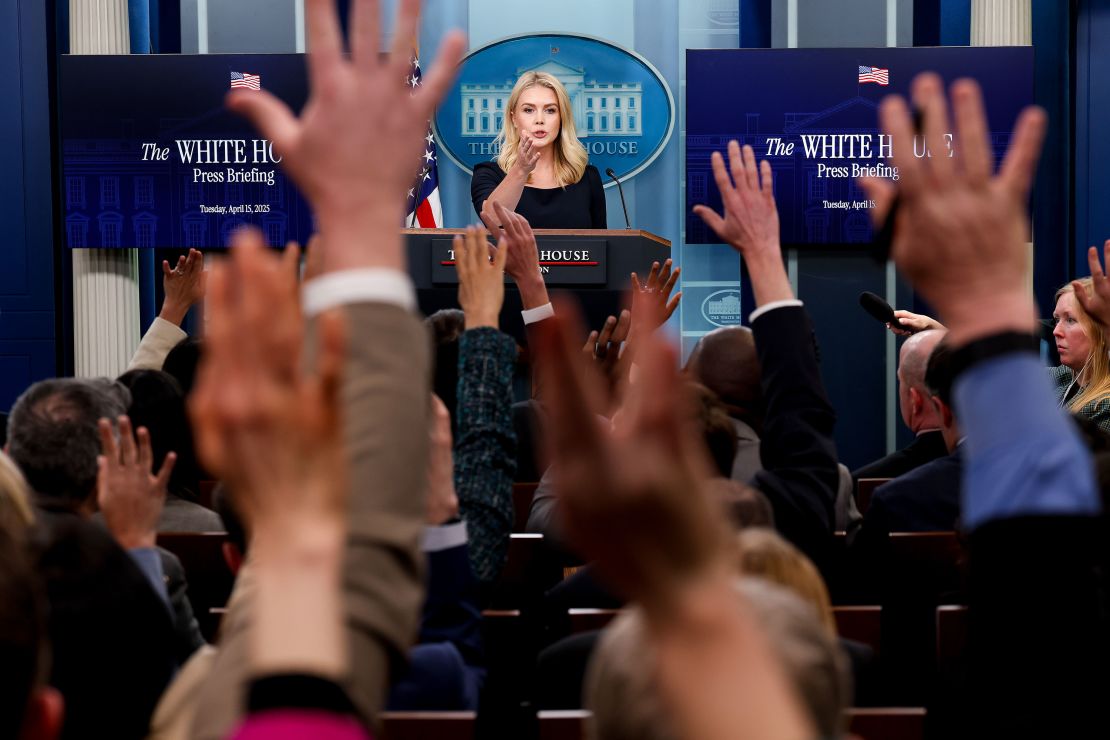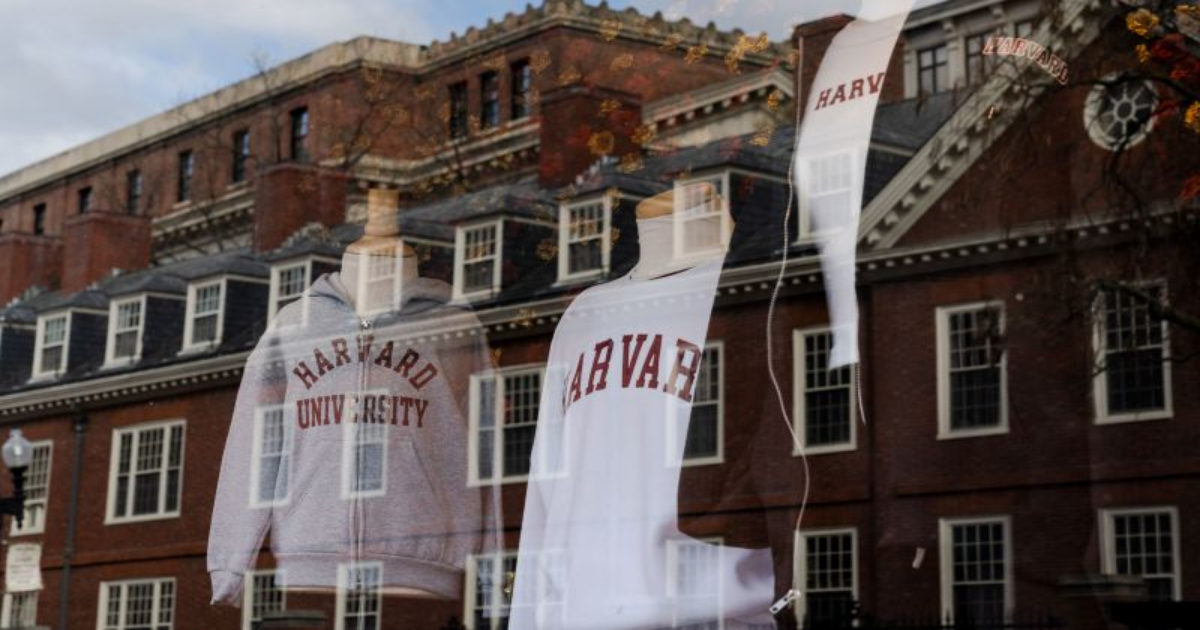CNN —
Harvard University’s lawsuit against the Trump administration has set up a titanic clash between America’s most prestigious university and the federal government over academic freedom, federal funding and campus oversight.
The legal showdown over frozen federal funds will likely take years to play out and could end up at the Supreme Court.
The nation’s oldest university, Harvard has emerged as a symbol of resistance against President Donald Trump, who has been trying to “reclaim” colleges and universities and has framed the conflict as a fight against antisemitism. The university says the White House is trying to control the Harvard community.
Related stories
The Trump administration has already rolled back diversity, equity and inclusion programs, arrested international students and revoked their visas, and frozen federal funding for schools that refused to submit to its demands.
Harvard said the Trump administration has cut the funds to gain “leverage” over the university and the move is part of a “pressure campaign” to force the school to submit to governmental control, according to court documents.
The government’s actions “threaten Harvard’s academic independence” and “are part of a broader effort by the Government to punish Harvard for protecting its constitutional rights,” Harvard’s lawyers wrote.
The new Harvard lawsuit argues the Trump administration has failed to establish any tie between the crucial funding cuts and fighting antisemitism.
“The Government has not – and cannot – identify any rational connection between antisemitism concerns and the medical, scientific, technological, and other research it has frozen that aims to save American lives, foster American success, preserve American security, and maintain America’s position as a global leader in innovation,” said the lawsuit, filed in Boston federal court.
The lawsuit comes as prominent Jewish organizations, including the Anti-Defamation League and Harvard’s chapter of the Hillel student organization, have publicly questioned the administration’s broad attacks on the university.
“(S)huttering apolitical, life-saving research; targeting the university’s tax-exempt status; and threatening all student visas … is neither focused nor measured, and stands to substantially harm the very Jewish students and scholars it purports to protect,” Harvard Hillel wrote Saturday.
The escalation between Harvard and the Trump administration intensified quickly, according to court documents.
In March, the federal government sent a letter to Harvard saying the school was being investigated for its failures to “curb or combat” antisemitism on campus. A similar letter with demands for policy changes had been sent to Columbia University, and federal agencies soon announced a review of more than $5 billion in grants to the Ivy League school.
Columbia later announced several changes to address the Trump administration’s demands, an apparent concession to the federal government.

The White House continued targeting universities — Princeton, Cornell and Northwestern all had funds frozen or suspended — and on April 11 sent Harvard a list of policy changes it wanted implemented, demanding “immediate cooperation” if the university wanted to “maintain Harvard’s financial relationship with the federal government.”
The list included eliminating the school’s diversity, equity and inclusion programs, banning masks at campus protests, merit-based hiring and admissions reforms and reducing the power held by faculty and administrators “more committed to activism than scholarship.”
A New York Times report suggested the letter inadvertently had been sent prematurely. Still, Harvard put out a response three days later, publicly rebuking the Trump administration, saying it would not “surrender its independence or relinquish its constitutional rights.”
The Trump administration retaliated by freezing $2.2 billion in multiyear grants and contracts, making plans to rescind Harvard’s tax-exempt status and threatening the school’s ability to host international students.
The school sued days later.
Billions of dollars, along with jobs, research and Harvard’s ability to administer financial aid are not the only things at stake. The “standing of American higher education” is also on the table, Harvard President Alan Garber said Monday in a statement.
Garber also signed a letter with more than 100 presidents of colleges, universities and scholarly societies, opposing the Trump administration’s pressure on academic institutions.
“As leaders of America’s colleges, universities, and scholarly societies, we speak with one voice against the unprecedented government overreach and political interference now endangering American higher education,” said the letter released Tuesday by the American Association of Colleges and Universities.
“We are open to constructive reform and do not oppose legitimate government oversight. However, we must oppose undue government intrusion in the lives of those who learn, live, and work on our campuses,” wrote the presidents – including leaders of Princeton and American universities – adding, “The price of abridging the defining freedoms of American higher education will be paid by our students and our society.”
The Trump administration intends to continue a dialogue with Harvard, Education Secretary Linda McMahon said Tuesday, insisting the White House’s recent demands are not about curbing freedom of speech.
“I made it very clear that these are not First Amendment infractions. This is civil rights. This is making sure that students on all campuses can come and learn and be safe … and that is why we have had these funds either withheld or frozen during this period of time of negotiation,” she said on CNBC’s “Squawk Box.”
McMahon did not respond directly to a question about whether the Trump administration’s demand in its April 11 letter for “viewpoint diversity” among Harvard students, faculty and departments, to be audited by a third party, is really about free speech.
“We had hoped Harvard would come back to the table to discuss these. We would like to have viewpoint diversity,” the education secretary replied. The letter, she added, “was intended to have both parties sit down again and continue their negotiations.”
Garber said last week the demands in the letter were “unprecedented” and made “to control the Harvard community,” adding that the university “will not surrender its independence or relinquish its constitutional rights.”
On Monday, Harvard sued the Trump administration over the government’s funding freeze, calling it “unlawful and beyond the government’s authority.”
Harvard, the world’s wealthiest university, has an endowment of $53 billion, which could help cushion cuts. About 80% of that money is earmarked for financial aid, scholarships, faculty chairs, academic programs or other projects, according to the school. The remaining 20% is intended to sustain the institution’s future.
But the lawsuit paints a bleak picture of that future if Harvard has to dip into university coffers for too long. Eventually, Harvard will be left operating at “a significantly reduced level,” the complaint says.
“If Harvard continues to replace the frozen funding from its own resources, it will be forced to reduce the number of graduate students it admits and the number of faculty and research staff it pays to conduct research,” the lawsuit says.
The Trump administration’s threats against Harvard’s tax-exempt status and its ability to host international students could put even more pressure on the university’s funding, and more federal money could get withheld.
The National Institutes of Health announced Monday it would pull medical research funding from universities with diversity and inclusion programs. Of the $686 million in Harvard’s federal research funding in fiscal year 2024, $488 million came from NIH, according to the Harvard Crimson.

The government is “slamming on the brakes” on research and the “victims will be future patients,” Garber said. Research on childhood cancer, infectious disease outbreaks and how to ease the pain of soldiers wounded on the battlefield would all be affected, Garber added.
The indiscriminate cuts, he said, would undermine America’s position as a global leader in innovation, adding, “The consequences of the government’s overreach will be severe and long-lasting.”
Harvard’s many partnerships with other universities, private companies, and state and local agencies mean the freeze on funding will touch off widespread economic harm, the lawsuit argues, noting, “Harvard is one of Massachusetts’ largest employers.”
“The freeze creates a ripple effect extending beyond Harvard’s campus by stifling job creation in the research sector across the nation, reducing intellectual property development, and delaying scientific and medical advances that boost the national economy,” the lawsuit says.
CNN’s Shania Shelton, Brad Lendon, Matthew Rehbein, Andy Rose and Michelle Krupa contributed to this report.

